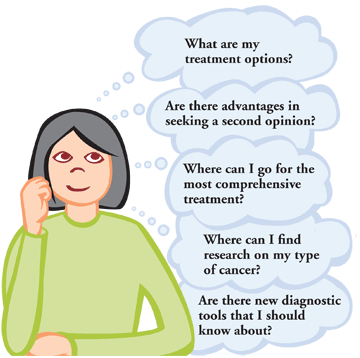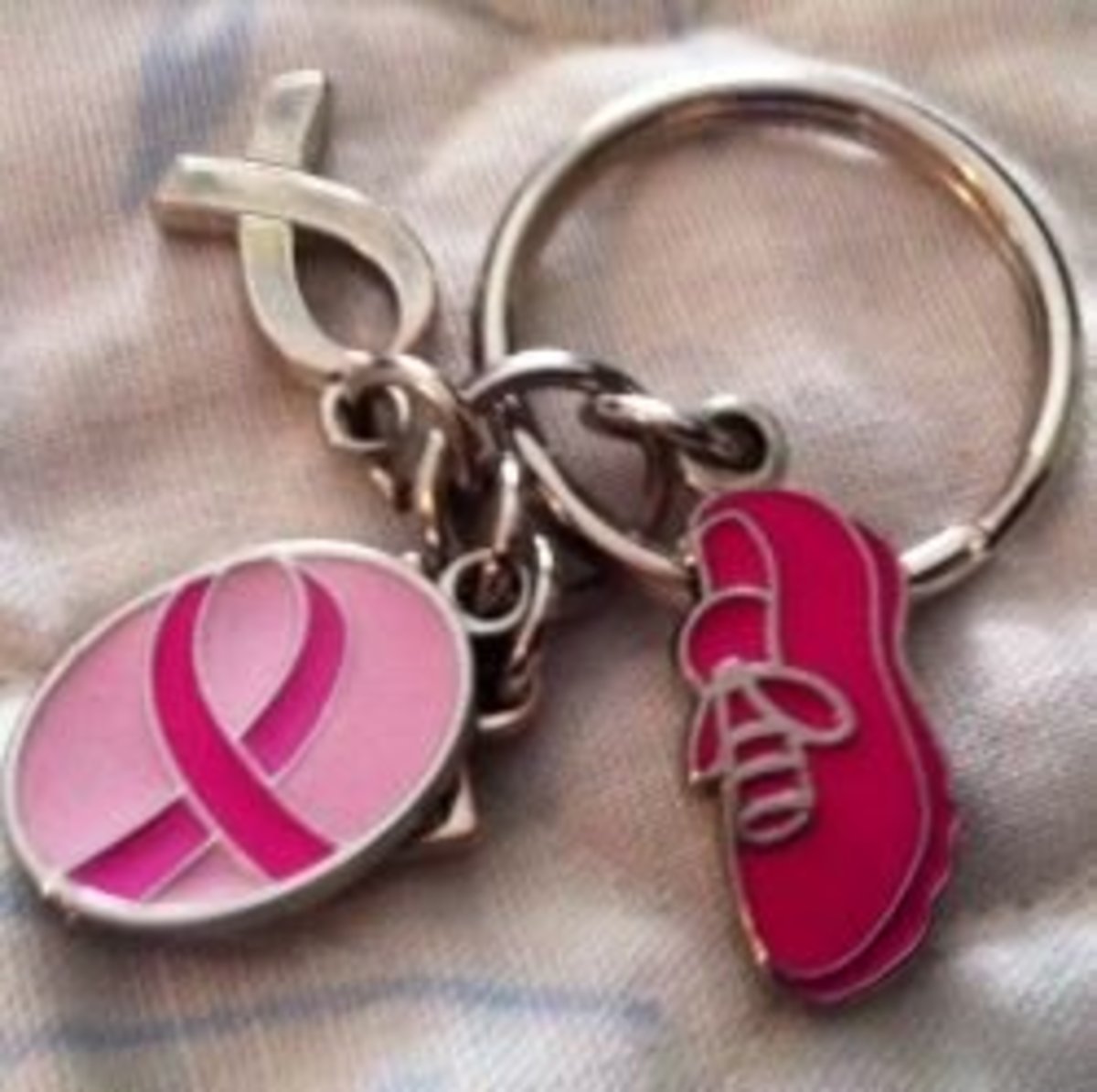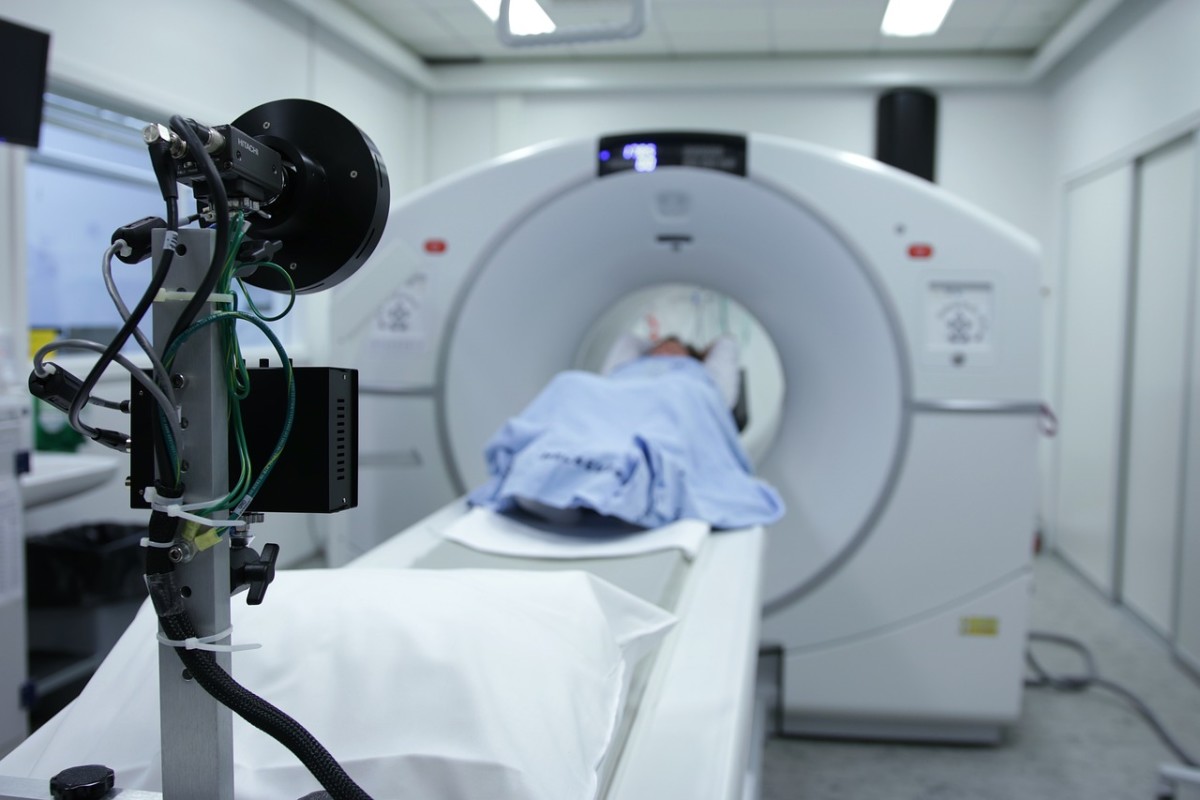Talking with a Person Who Has Cancer - How to Talk to a Cancer Patient
Do unto others as you would have them do unto you.
- The Golden Rule
Do you change the subject when someone close to you who has cancer starts to talk about it?
Cancer is a difficult subject to talk about for many people. I hope the following information will help those who know someone affected by cancer (or any other serious illness) feel more comfortable talking about it.
Remember the “Golden Rule” from grade school? Think about how you would want to be treated if you were in their shoes, and remember these helpful tips:
- Accept the person how he or she is.
- Keep communication open.
- Let the person with cancer set the pace and decide when and how much they want to talk about it.
- Give the person your support and reassurance.
- Help them to maintain hope.
- Listen to them – listen with your heart.
About Cancer
As prevalent as cancer is these days and because cancer affects people of all ages, races and incomes, we are all bound to talk to someone with cancer at some point in our life. There are no rules to follow. Just as no two cases of cancer are alike, each person and situation is also unique.
Many people are afraid when they hear cancer because it makes them think of death; however, cancer patients don’t always die. In fact, about nine million people with a history of cancer are alive today in the United States!
Cancer is often a long illness that requires different types of treatments at different stages along the way. Family and friends must adjust to the changing treatments and be able to provide emotional support along the way.
Hearing the News
If a person facing the possibility of cancer confides in you, it’s probably because he or she is anxious and really needs someone to talk to. This is when you should listen, openly communicate and help the person hope for the best. Waiting is the worst part, but having someone to wait with helps.
Every person reacts differently to being told they have cancer. Some want to talk about it in detail, while others may not want to talk at all. Sometimes the person’s desire to talk may change from day to day and you must be okay with that.
If cancer suspicions are confirmed, it should be the doctor that tells the patient. You may want to consider whether or not to be present when the doctor discusses the results. For some, when the doctor talks at the same time to both the patient and his or her loved ones, it gives the patient a more secure feeling. Ask the patient if he or she would like family (or a friend) present.
Hearing the diagnosis of cancer is often shocking to people and they may not hear anything else that the doctor says, so having a friend or family member present at doctor visits can help. That person should pay close attention, maybe even take notes, so that later on they can help the patient remember what was said. Try not to push too much information on the patient at one time if it seems that they can only handle distressing information in small doses.
Cancer patients need all the support that their loved ones can offer, so if you are uncomfortable talking cancer, get over it, don’t shut out your loved one.

Coping
When diagnosed with cancer and during the whole process, people with cancer may express anger and even hostility towards those around them. This can be upsetting to loved ones, but it may help to remember that it is not uncommon for people to displace their anger and frustration onto the people close to them by projecting those feelings onto them. If this happens to you, just try to understand that it is overwhelming to have cancer – it’s also frustrating, maddening, and scary as heck!
When someone is diagnosed with cancer, they fear pain, loss of income, changes to their body, and adjustments to almost every aspect of their life as they know it and that can cause enormous anxiety. This anxiety often causes cancer patients to become frightened, suspicious and upset for no apparent reason. If this happens, loved ones may need to make a strong effort to reassure them. But don’t ever say “I know how you feel” unless you’ve really been in their shoes!
Communication
Ask the patient how they are feeling as well as what they are feeling. If they ask you about their illness or treatment, be honest and open and don’t be afraid to acknowledge what you don’t know. Honesty is always appreciated.
People with cancer need consistent emotional support throughout the course of their treatment. The rigors of treatment can tend to deplete motivation and courage and loved ones need to be able to support and encourage in those moments. Be sure, however, not to over-step boundaries and encourage the cancer patient to let you know if you do cross a line.
Visiting
Some people find it shocking and upsetting to visit someone with cancer, especially when someone is very ill or their appearance has changed. Try to remember that this is the same person you’ve always known and cared about – try to relate to him or her the same way you have in the past. It’s okay if you get emotional during a visit – explain to your loved one, the patient, how much you care about them and how upset you are that they are going through such a difficult experience. Don’t be afraid to show your feelings, but also make sure that the person with cancer doesn’t have to comfort you!
Remember -
One a final note – just as cancer patients can’t spend all of their time thinking about their illness, neither should loved ones spend every minute being with the patient or thinking about him or her. Loved ones who are helping to take care of and support a cancer patient need relief and rest to stay emotionally – and physically – capable to continue to be helpful. Take time for yourself and call upon others to help.
Listen, offer help and provide encouragement – these three things can go a long way toward helping a loved one with cancer. Let them talk and be a good listener and pay attention to what they say. Silence is sometimes golden; constantly talking because you’re nervous can be irritating – silence can be okay. Be yourself and don’t worry about whether you’re doing things right; your caring is the most important thing for your loved one.
One very important thing to remember – whatever you do, don’t give advice! That’s usually the last thing he or she needs. Ask questions or just listen. Don’t say “I know how you feel.”










